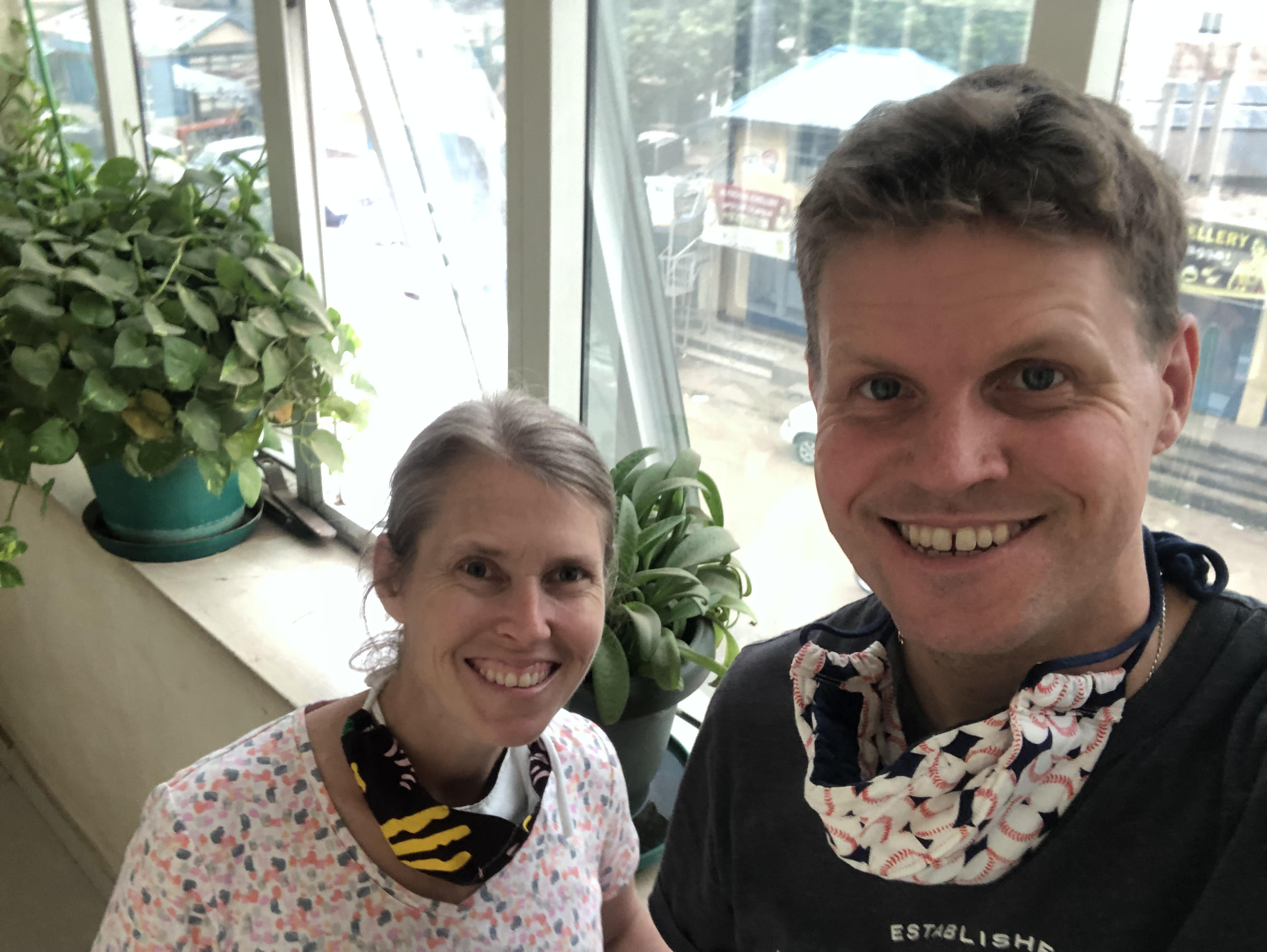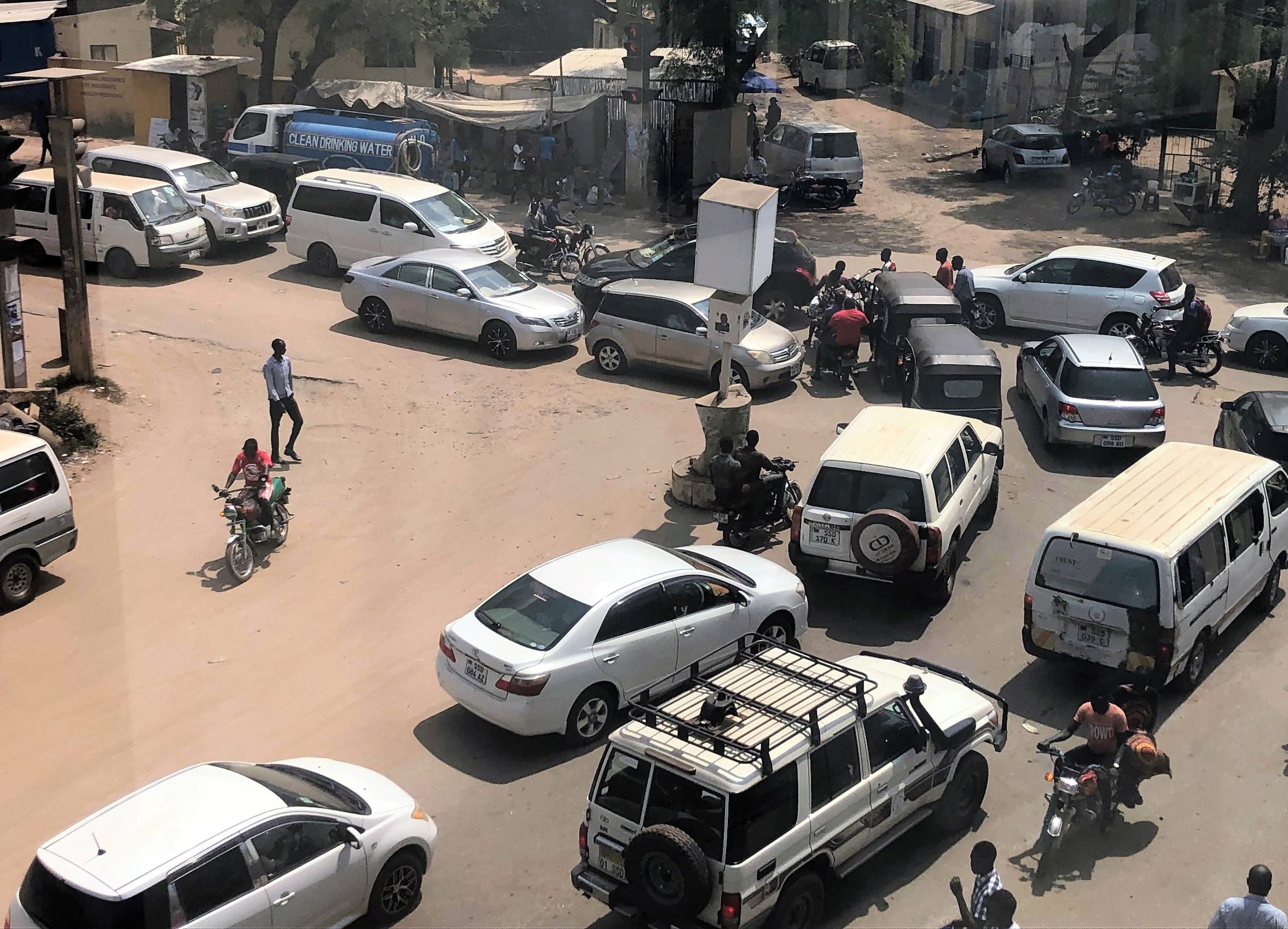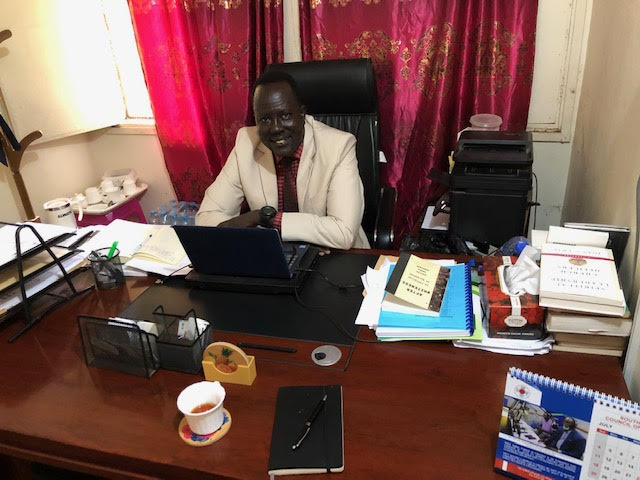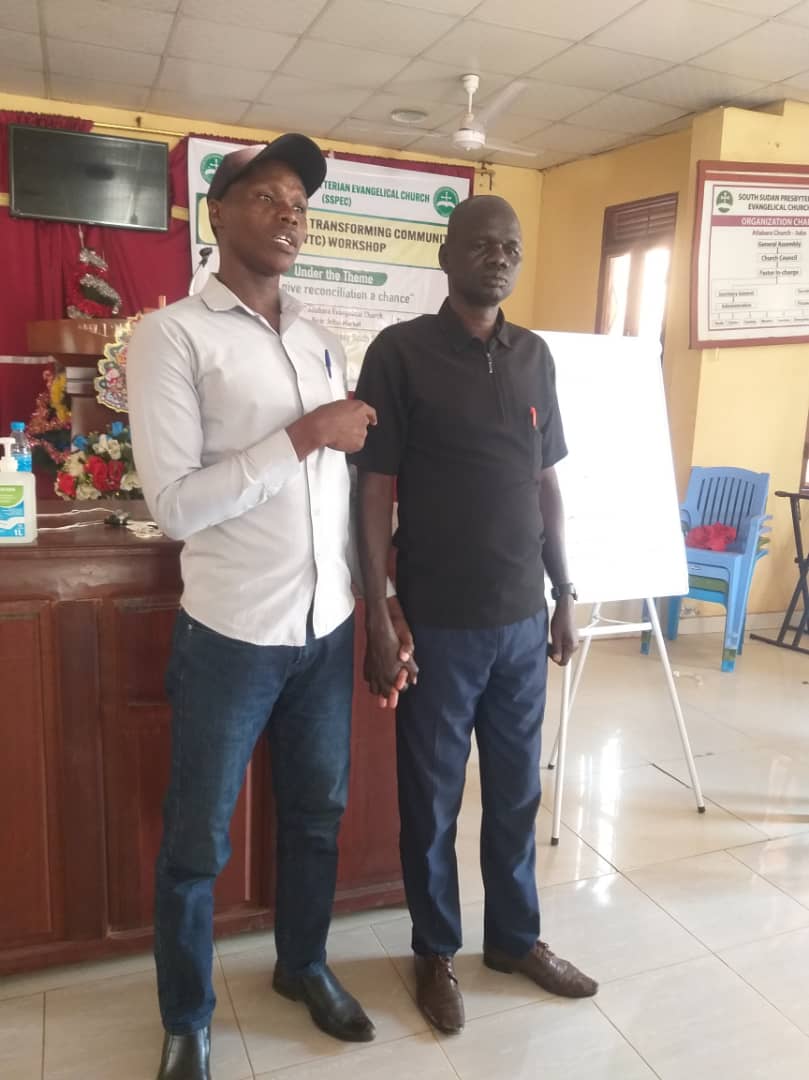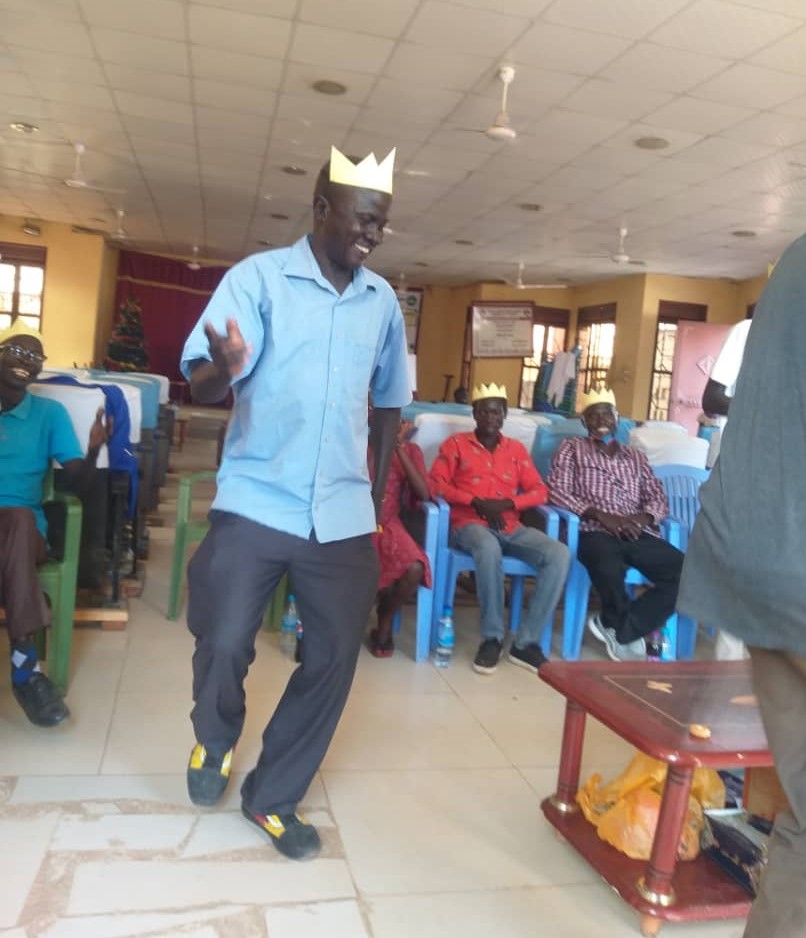A Letter from Bob and Kristi Rice, serving in South Sudan
Summer 2021
Write to Bob Rice
Write to Kristi Rice
Individuals: Give to E200429 for Bob and Kristi Rice’s sending and support
Congregations: Give to D507528 for Bob and Kristi Rice’s sending and support
Churches are asked to send donations through your congregation’s normal receiving site (this is usually your presbytery)
Subscribe to our co-worker letters
Dear friends,
After a week of quarantine upon our arrival in Juba, we walked along the dusty road as motos and cars sped by. “It feels like nothing has changed!” Kristi exclaimed, with a comfortable feeling of familiarity. Now that we have been back home in Juba a few weeks after a year’s absence we have noticed many changes, as well as the familiar things that stayed the same. New shops have opened and there is a lot of construction of new buildings, a sign of the hope for peace and the result of people returning from neighboring countries to which they had fled. Prices of most goods have doubled in the last year, due to the volatile currency and inflation. And we notice increased traffic squeezed onto the narrow roads, with more bodas (motorcycle taxis) weaving in and out while everyone negotiates the potholes. While we are happy to be back in our familiar apartment, we are adjusting to not having our colleagues who were also neighbors around because some have retired.
Nile Theological College also has a few significant changes. A new class of students started in January of 2021, and Bob looks forward to getting to know them. Rev. Peter Yien was appointed as the academic dean, following nearly three years of searching for the right person. We welcome your prayers for Peter and all of the faculty in this transition of an important position in the leadership. Bob is teaching Sudanese Church History this semester – a new class for him, and a subject he is excited about. He has enjoyed reconnecting with the faculty and familiar students, and he is grateful and inspired by the ways they persevered and adapted in the midst of challenges last year.
The workshops that we call “Healing Hearts, Transforming Communities” have continued through the South Sudan Presbyterian Evangelical Church (SSPEC), with some new members on the team. Several of the facilitators had just been trained in March of 2020 when we had to leave because of COVID, so I have not had the opportunity to work with them. When we met together last week, they shared how encouraged they have been to see people experience healing and forgiveness. “You really see people change during the workshop,” reflected Romano Kuat, “This is the workshop people really need.”One of the facilitators, Susan Ajullu, found ways to incorporate some of the teachings into the Sunday service in her congregation. When the choir was not available to sing, she performed a drama about why we should forgive and led a short discussion. She said that this helps everyone in the church to get a taste of the principles that are communicated in a workshop and makes them eager to learn more.
We reflected together about the different types of trauma or conflict that people experience. Many people in South Sudan have experienced pain or conflict within their own families or communities, and they have been carrying that anger and hurt for years. One participant named John shared that his parents both died in 1993. He was sent to live with his uncle’s wife, but she mistreated him. He left home as a teenager to become a soldier. After nearly 20 years in the military, he left, but did not have a home to go to or any salary, and the discouragement drove him to drinking too much alcohol. In his desperation, he realized his need for God and went to church. He expressed how grateful he was that his church recommended him for this workshop. “I am a new person today! I forgive my uncle’s wife for the way she treated me.”
In addition to personal pain, people also experience collective pain and conflict. For example, some ethnic groups in South Sudan were targeted in the conflict in 2013, so there is still deep mistrust and hatred between groups who attacked each other. The workshop seeks to create an environment where participants experience God’s love and forgiveness in a way that opens the door for healing from individual pain. But we also address the need for healing from collective pain and give opportunity to acknowledge and seek forgiveness for wrongs done against groups of people. Each group must be willing to acknowledge the wrongs that they committed and confess them in order for reconciliation to be possible. When we have been hurt, the temptation to justify ourselves is strong.
Using Biblical precedent from people such as Ezekiel, Daniel, Abigail, and Jesus, we give opportunity for people to confess the wrongs committed by their people. One man from the region of Akobo acknowledged that his people, the Nuer, had attacked and killed people from the Anywaa ethnic group who lived in Akobo, chasing them out. He lamented the wrongs of those attacks and asked the Anywaa people for forgiveness. Anywaa participants accepted his confession and forgave him, which was a powerful step on both sides of healing the anger and prejudice caused by events in the past.
While the content of the workshop remains the same, our team of facilitators is growing and changing, which helps us to address the unique needs of each community. Just this month, two pastors went to Kenya to be trained. They are both from rural areas that have experienced conflict, and we hope that other members of the team will be able to join them for workshops in their communities. We appreciate your prayers that God would continue to open doors and provide the resources needed to host these workshops.
It has struck us several times this month how grateful we are to be back in South Sudan and to reconnect with our colleagues and this work that God has called us to. We are grateful for the familiarity of the people around us and an apartment that has become home. And we praise God for the positive changes and the ways that God continues to work in South Sudan. Your prayers for us and for South Sudan are much needed and much appreciated here. Thank you also for your financial support that enables us to continue the journey with God’s people here.
In Christ,
Bob and Kristi
![]() You may freely reuse and distribute this article in its entirety for non-commercial purposes in any medium. Please include author attribution, photography credits, and a link to the original article. This work is licensed under a Creative Commons Attribution-NonCommercial-NoDeratives 4.0 International License.
You may freely reuse and distribute this article in its entirety for non-commercial purposes in any medium. Please include author attribution, photography credits, and a link to the original article. This work is licensed under a Creative Commons Attribution-NonCommercial-NoDeratives 4.0 International License.
